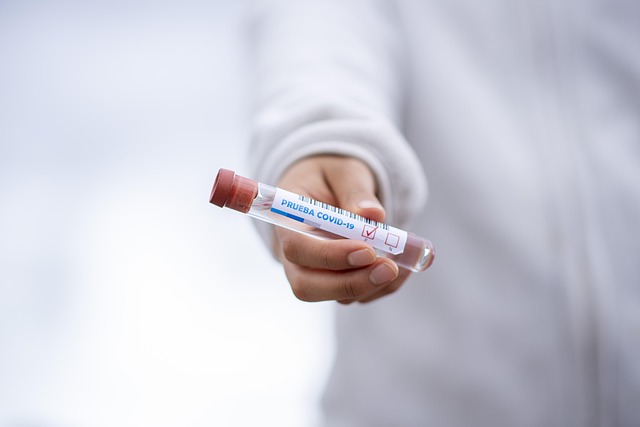Translation service providers specializing in UK medical case studies must navigate a complex web of regulations (GDPR, MDR, CTR) while ensuring accuracy and cultural sensitivity. Choosing a reliable service with expert healthcare translators, robust quality assurance, ethical data handling, and adherence to standards like MTA is crucial. Engaging these professionals guarantees precise, compliant translations, enhancing patient care and research outcomes in the UK market.
In the dynamic landscape of global healthcare, accurate and compliant translations of medical case studies are paramount. As the UK navigates a sea of regulatory requirements, ensuring precise localisation becomes crucial for effective knowledge sharing and patient care. This comprehensive guide delves into the essential steps for translation service providers to master UK medical case study translations. From understanding stringent regulations to adhering to ethical standards, we explore best practices that facilitate seamless market entry and continuous translation updates.
- Understanding UK Medical Regulations for Translations
- The Importance of Accurate Case Study Localisation
- Selecting Reputable Translation Services for Healthcare
- Ensuring Quality Assurance in Medical Translation
- Adhering to Ethical Standards in Patient Data Handling
- Legal Considerations for Translation Service Providers
- Best Practices for Effective UK Market Entry
- Continuous Monitoring and Updating of Medical Translations
Understanding UK Medical Regulations for Translations

When providing translation services for UK medical case studies, it’s paramount to grasp the intricate web of regulations that govern healthcare documentation within the country. The UK has stringent standards for medical translations to ensure accuracy and patient safety. Key among these is adherence to the General Data Protection Regulation (GDPR), which outlines guidelines on handling personal data, including health information.
Translation service providers must also familiarize themselves with the Medical Devices Regulation (MDR) and the Clinical Trials Regulation (CTR), which regulate the translation of product information, user manuals, and clinical trial documentation, respectively. Compliance involves not only translating words but ensuring that medical terminology, instructions, and warnings are accurately conveyed in a manner that aligns with UK healthcare practices and legal requirements.
The Importance of Accurate Case Study Localisation

In the realm of medical case studies, accuracy and cultural relevance are paramount. When translating case studies for a UK audience, it’s not just about converting words from one language to another; it’s about ensuring that the essence, nuances, and medical terminology resonate perfectly with British readers. Translation services for UK Medical Case Studies must go beyond simple word substitution to grasp the context, cultural subtleties, and legal requirements specific to healthcare communication in the UK.
Accurate localisation ensures that medical professionals, researchers, and patients receive clear, consistent, and reliable information. It bridges the gap between international medical knowledge sharing and local healthcare practices. Inaccurate translations could lead to misdiagnosis, incorrect treatment plans, or even legal repercussions, making precise localisation a critical step in the case study translation process for UK audiences.
Selecting Reputable Translation Services for Healthcare

When it comes to translating medical case studies for a UK audience, selecting a reputable translation service is paramount to ensuring accuracy and compliance with local regulations. Opting for professional translators with expertise in healthcare is essential, as they possess the knowledge to handle complex medical terminology and concepts accurately. Look for providers that specialize in scientific and medical translations, demonstrating their understanding of industry-specific language and nuances.
Reputable translation services for UK medical case studies should offer a range of benefits, including human translation by qualified linguists, quality assurance processes, and adherence to ethical standards. They must also be able to customize their services to meet the specific requirements of healthcare documents, such as preserving technical accuracy and maintaining confidentiality.
Ensuring Quality Assurance in Medical Translation

Ensuring quality assurance in medical translation is paramount, especially for case studies that require precise and accurate information. When translating UK medical case studies, it’s crucial to engage professional translators with deep knowledge of both the source and target languages, as well as expertise in medical terminology. Reputable translation services invest heavily in rigorous quality control processes to guarantee error-free translations that maintain the integrity of medical data.
These processes often involve multiple rounds of review by expert linguists and medical professionals. Advanced technology, such as machine translation tools and terminological databases, can also play a significant role in enhancing accuracy. Ultimately, choosing a reliable translation service for UK medical case studies ensures not only linguistic fluency but also the preservation of critical medical insights, contributing to better patient care and research outcomes.
Adhering to Ethical Standards in Patient Data Handling

When translating UK medical case studies, adhering to strict ethical standards in patient data handling is paramount. Translation services must ensure that all personal and sensitive information is treated with the utmost confidentiality and compliance with regulations like GDPR. This involves implementing robust security measures, obtaining necessary consents for data processing, and ensuring anonymity where possible.
Professional translation providers specializing in medical translations for the UK market are equipped to handle these responsibilities. They employ translators with expertise in healthcare terminology and strict protocols for data protection, ensuring that patient case studies are translated accurately and ethically, maintaining the integrity of the original research while adhering to legal and ethical guidelines.
Legal Considerations for Translation Service Providers

When providing translation services for UK medical case studies, translation providers must navigate a complex landscape of legal considerations to ensure compliance and accuracy. The regulations around healthcare information are stringent, with the General Data Protection Regulation (GDPR) and the Data Protection Act 2018 as key frameworks that govern how sensitive data can be handled and shared. Translation companies must implement robust security protocols to protect patient records, ensuring confidentiality at every stage of the translation process.
Moreover, the Medical Devices Regulation (MDR) and the Clinical Trials Regulation (CTR) further complicate the landscape for translators working in this domain. These regulations demand precise and consistent language use, especially when translating medical terminology, to maintain product safety and efficacy. Translation service providers must employ qualified linguists with expertise in medical terminology and a deep understanding of UK healthcare systems to meet these stringent requirements. Adhering to these legal standards not only ensures the integrity of the translated case studies but also safeguards the reputation of both the translation provider and the original medical institution.
Best Practices for Effective UK Market Entry

When entering the UK market with medical case study translations, adhering to best practices ensures accuracy and compliance with local regulations. One key aspect is to engage professional translation services specialised in the medical field. These experts possess the knowledge of both language and healthcare terminology, critical for precise translations. They also stay updated on industry standards and guidelines, such as those from the Medical Translation Association (MTA).
Additionally, a thorough review process is vital. This involves multiple rounds of editing and proofreading by qualified linguists to catch any potential errors or inconsistencies. Incorporating feedback from medical professionals further enhances accuracy. Reputable translation companies often offer this service, guaranteeing that your UK-bound medical case studies meet the required standards for content integrity and cultural adaptability.
Continuous Monitoring and Updating of Medical Translations

Translation services for UK medical case studies must adopt a dynamic approach, ensuring that content remains current and compliant with evolving healthcare regulations. Continuous monitoring is vital to track changes in medical terminology, guidelines, and legal requirements specific to the UK market. This proactive strategy involves regularly reviewing and updating translations to maintain accuracy and avoid any potential issues.
Healthcare language professionals should stay abreast of industry developments through ongoing training, subscription to relevant medical journals and associations, and participation in professional networks. By integrating these practices, translation services can guarantee that case study translations not only meet current standards but also adapt to future changes, thereby ensuring compliance throughout the entire process.
When navigating the complex landscape of medical case study translations for the UK market, adhering to stringent regulations and ethical standards is paramount. By selecting reputable translation services that specialise in healthcare, implementing robust quality assurance processes, and staying updated with legal considerations, you can ensure accurate localisation without compromising patient data privacy. This comprehensive approach facilitates smooth market entry and continuous improvement, making it a game-changer for any organisation looking to excel in the UK healthcare sector through effective case study translations.
